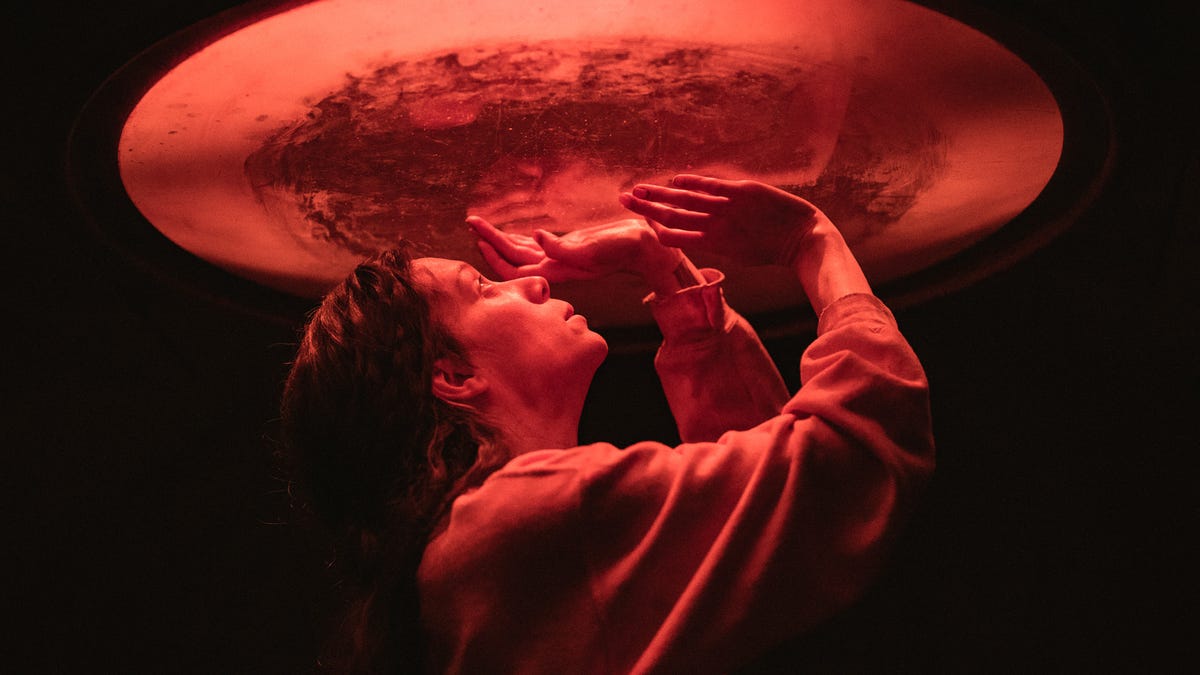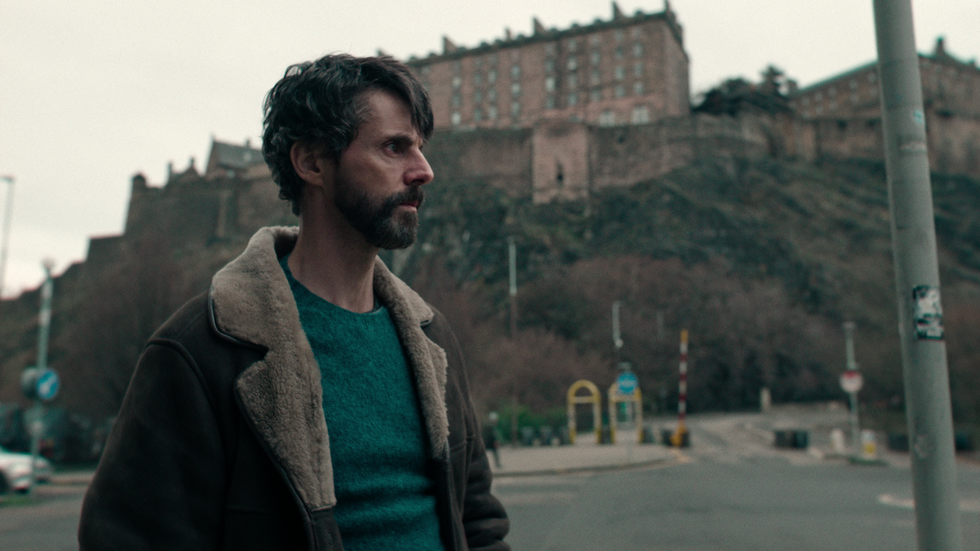How Netflix’s <i>Dept. Q</i> Brought a Book Series—And the Author’s Real Experiences—To Life


Spoilers ahead.
Netflix’s newest thriller series, Dept. Q, follows Carl Morck (Downton Abbey’s Matthew Goode), a detective who has recently returned to work after being shot by an unknown assailant. While struggling with the aftermath of being the victim of a crime, Morck is put in charge of a newly formed cold case unit. With a haphazard group of unlikely co-workers, Morck starts investigating the mysterious disappearance of prosecutor Merritt Lingard (Chloe Pirrie) several years earlier. But is the cold case at the center of Dept. Q’s creepy first season based on a true story?
Dept. Q is adapted from a Danish book series.Dept. Q is based on a book series by Danish crime fiction author Jussi Adler-Olsen. There are actually 10 books in the series, which follows former homicide detective Carl Mørck, who is put in charge of a cold case unit called Department Q. While the Netflix series is set in Edinburgh, Adler-Olsen’s novels take place in Copenhagen.
In a 2017 interview with Crime Fiction Lover, Adler-Olsen revealed that he incorporated parts of his own personality into Dept. Q’s protagonist, including his real first name (the author was born Carl Valdemar Jussi Henry Adler-Olsen). “One characteristic we share is a certain degree of laziness,” the writer explained. “I have always been embarrassed by this so I have always been quite diligent out of fear of indulging in my laziness. Basically, I envy [Carl’s] ability to put his feet up and take a nap.” However, Adler-Olsen also noted some of the more positive attributes he has in common with his famous character, such as finding “it easy to come up with creative ideas,” and being “direct.” The author suggested he envies when Mørck “speaks plain truths directly to people.”
In a 2020 interview with Thrillers & More, Adler-Olsen discussed how his own childhood influenced his writing. The author’s father was a doctor, which led to his family living in “three mental hospitals” when he was growing up. “Suddenly I had a lot of friends amongst the patients,” Adler-Olsen explained. “Like Mørck. He was a real patient, who killed his wife. It started as a normal argument, but ended terribly. That deed drove him insane. But he was nice to me.”
Living in hospitals meant that Adler-Olsen witnessed “autopsies being performed” and “shock treatments” being carried out, he told Thrillers & More, which all fed into his writing later in life. “It was very interesting for me to see what a patient I’d known looked like on the inside,” the author said of watching doctors perform autopsies. “To me, life and death were obvious and meaningful at a young age, and I was never scared. It also influenced me a lot in my understanding of when you’re twisted, how twisted you can be. How normal it can be for even a normal person to have good and evil in you at the same time. It’s only a matter of the wrong incident at the wrong moment that raises the bad in you.”
Dept. Q’s creator relocated the story from Copenhagen to Scotland.One of the biggest changes between Adler-Olsen’s book series and its Netflix adaptation is the setting. The show’s creator, Scott Frank, is responsible for moving the action from Copenhagen, Denmark to Edinburgh, Scotland, and for casting English actor Matthew Goode in the lead role. “Because of Matthew, I realized the main character is going to be English, not Scottish, and that it would be really fun to play up his loathing of the Scottish people for no other reason than his ex-wife was Scottish, so he takes it out on everyone else,” Frank told Tudum.
As for why he wanted to move Dept. Q from Denmark to Scotland, Frank told the outlet, “I hadn’t really seen a show in Edinburgh before, and it’s a beautiful city.” The creator explained, “It’s the perfect combination between the modern and the medieval.”

Carl Morck (Matthew Goode) standing in front of Edinburgh Castle.
Goode concurred, suggesting to Tudum that Edinburgh’s “gothic architecture, and it being the judicial center of Scotland” made it the ideal city in which to set Dept. Q. In his interview with The Hollywood Reporter, Goode said that Edinburgh’s “medieval architecture” and the fact that the city is “quite small” provided further inspiration for Dept. Q. “It becomes a real character of our series,” the actor noted.
The cast was inspired by real true crime stories.While Dept. Q is based on a series of novels, some members of the cast drew inspiration for their characters from real crimes. In an interview with The Scottish Sun, Chloe Pirrie, who portrays kidnapped lawyer Merritt Lingard in the series, explained, “I did a lot of research around the legal world in Edinburgh.” She continued, “The court system there has been televised quite a lot through the BBC documentary series Murder Trial so I could see how it works, and how it feels like a bit of a club.”
Based upon her research, Pirrie believed “Merritt would absolutely exist outside of” any sort of insular legal clique, “and actually be in conflict with it.” Pirrie continued, “That immediately told me she would be someone who is potentially not well-liked—but that she probably doesn’t give a shit that that’s the case.” The actress also wanted to ensure she could accurately portray what being trapped in a hyperbaric chamber might be like. “I spent a lot of time looking into the effects of solitary confinement and what it does to people psychologically,” Pirrie told the outlet.
Despite playing the lead in Dept. Q, Matthew Goode wasn’t overly familiar with the show’s source material, and was allowed a certain degree of freedom when it came to his character. “I’ve done many adaptations [in] my career,” Goode told The Hollywood Reporter. “And sometimes you get so attached to bits in the book and then they just don’t appear in it.” He continued, “We got to create a different past. So [Morck] is still a bit of a mystery to people, which is, again, why I want to come back [for season 2].”
elle





